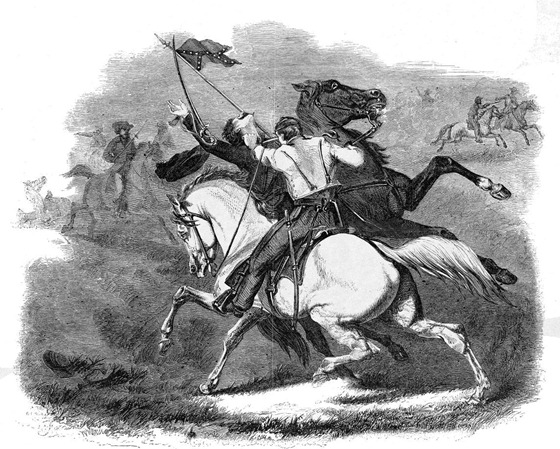Washington Wednesday Jan’y 7th 1863
Quite cold today with a Sharp raw wind. Went to the Pay Mast[er]s office with Lieut Belden today, left his papers and we are to call tomorrow afternoon. It is very quiet in the City. No further news from the South West. Genl B F Butler is here from New Orleans still. Where he is to be placed is as yet not known. The Country cannot well spare him at this crisis. He would make an admirable Sec’y of War. His administrative abilities are not surpassed in this Country.
My Landlord is an Englishman, Mr Cadman. He rents rooms and takes some boarders. A Capt Thornet boards here, an officer of Cavalry who has seen much service in the English Army. He is an Englishman, was all through the Crimean War, has a due quantity of English brag in his composition, has a great many distinguished friends in England and tells large stories. He has been even noticed by the Duke of Richmond [!! or II?]. Cadman likes a good dinner and consequently we live pretty well. He thinks more of his dog and his gun and field sports than any Yankee could, and English fox hunting and Horse racing are his hobbies. He is in govt employ here and is an excellent Clerk. Mr Mulvany as [sic] an Artist painter at our table. He puts the delicate touches to Bradys pictures (Photographs). He is half Italian, half Irish, and on excellent terms with himself, but a great talker and an unsparing critic of other Artists productions. Lieut Belden stays with me tonight & is to breakfast with me in the morning.











